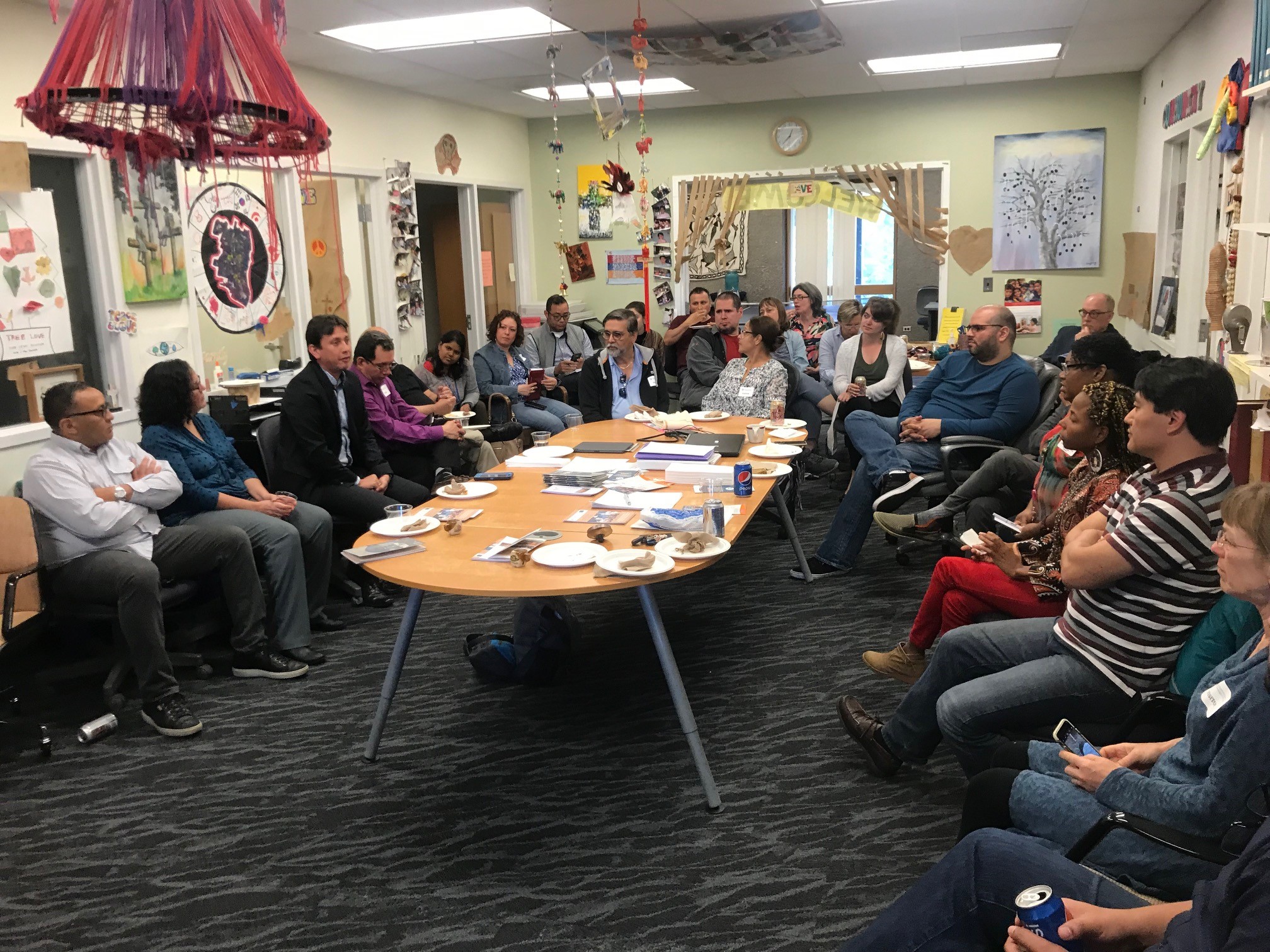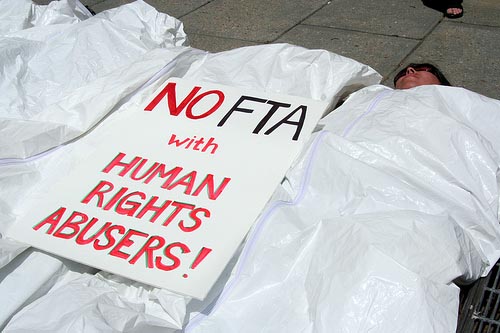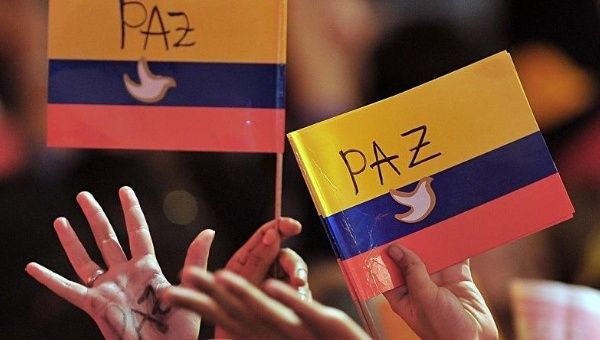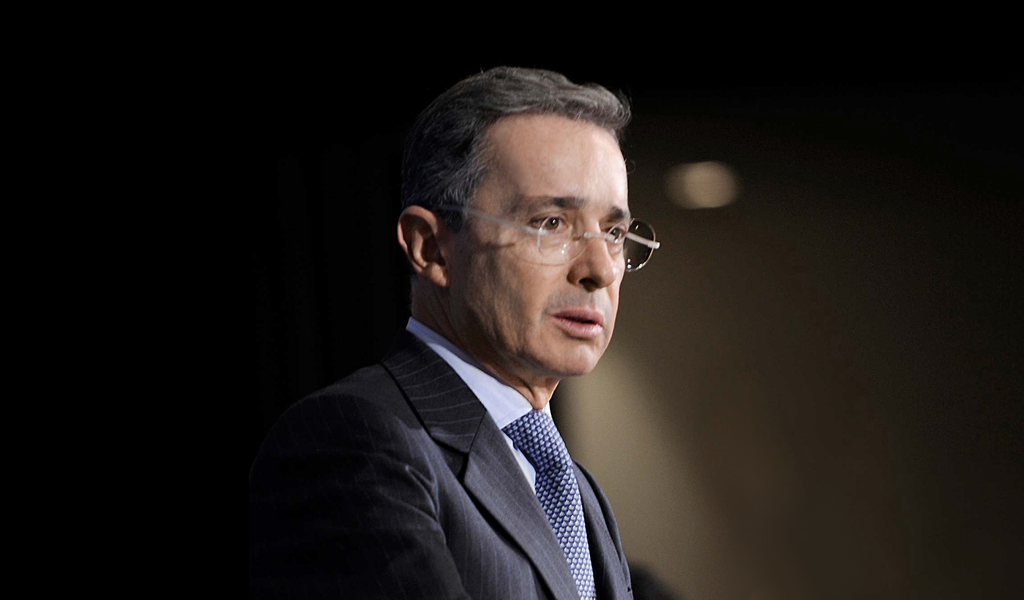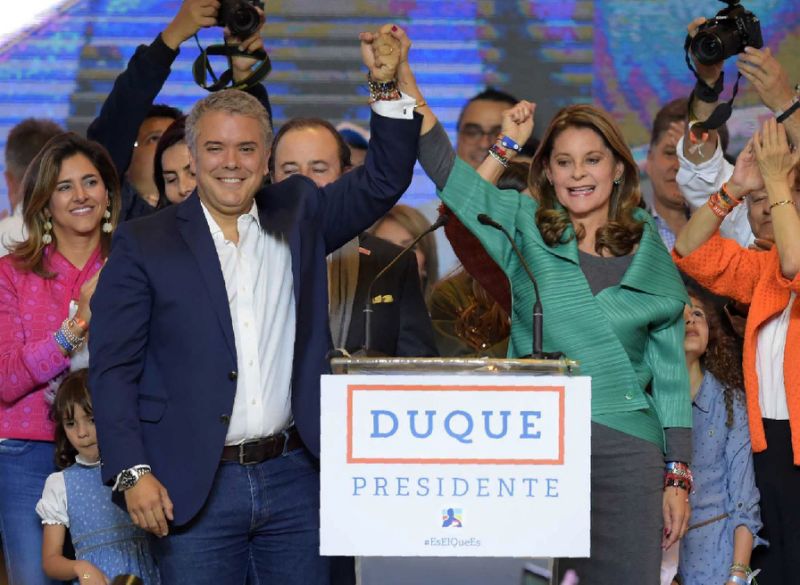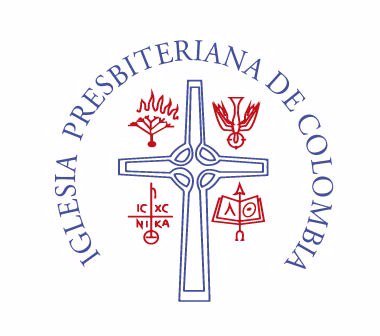On Monday, June 2, 35 people gathered at the Lutheran School of Theology in Chicago (LSTC) to share lunch and dialogue with Milton Mejía, General Secretary and President of the Latin American Council of Churches; Atahualpa Hernández, Bishop of the Evangelical Lutheran Church in Colombia; and Nidiria Ruíz Medina, an African-descended community organizer, land defender, and women’s peace activist from the Naya River area in Cauca, Colombia. The event was sponsored by LSTC, CRLN, and McCormick Theological Seminary.
The guests asked those gathered to get involved in advocacy efforts to rally support by the U.S. government for implementation of the Colombian Peace Accords. They also encouraged U.S. church members to restart the Days of Prayer and Action for Colombia, join accompaniment missions to seek to protect human rights defenders, and to find other ways to work for peace and reconciliation in Colombia.
Their message was sobering. While Peace Accords were signed by the Colombian government and the guerilla group FARC in November 2016 and later ratified into law, the government has not complied with its obligations under the Accords. FARC members were supposed to receive housing, education, and jobs to reintegrate them into society, but the current administration is reneging on those promises. In addition, the government was supposed to provide resources to encourage rural people to stop growing coca and start growing other crops. Instead, the U.S. has pushed the Colombian government to restart fumigation of coca crops first, without providing alternative means for families to earn an income and survive.
Finally, and most seriously, human rights violations, including assassinations, have actually increased. Since the peace deal was signed, around 700 activists and community leaders have been killed, and more than 210,000 people displaced from their homes amid the continuing violence. Thousands more have received credible threats against their lives, including Nidiria, who expressed some fear about returning to Colombia after receiving threats a couple of weeks ago.
Nidiria said that much of the violence happens in order to displace people from their lands, either so that large corporations or large landowners can increase their landholdings or so that narcotraffickers can have unimpeded access to their routes. Violence is also used to terrorize the population, so that people will not raise their voices to call for needed changes in social conditions.
The 3 spoke in New York and Washington, DC, before coming to Chicago.

